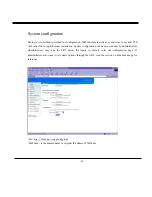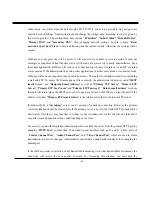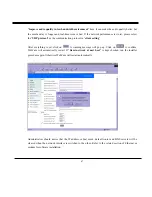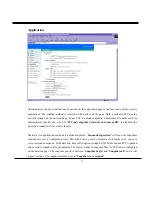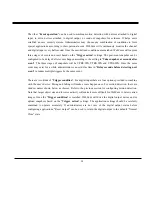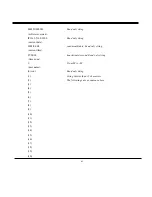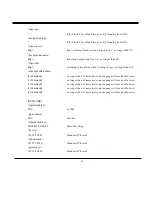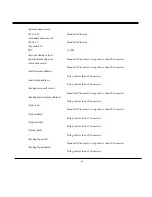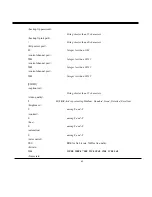
56
will force WebCam to drop the connection when there is no activity on the connection for the specific
period. The range of this period is from 1 to 240 minutes, with 0 indicating a continuous connection.
Administrators may let WebCam keep the connection for a while to allow connections from outside. The
IP address given by the ISP can be taken from the connection log that is mailed or uploaded when dial-up
connection is successful. Setting the value to zero will make WebCam always keep the connection.
Based on the settings of DI/DO in the application, the system will send mail or upload via FTP with
image attachment upon the event occurring. In that case WebCam will need a network connection and
automatically dial out to the pre-configured server outside. When a connection is successfully established,
WebCam will send out a connection log to notify given network settings. For those installations that may
switch the network interface between Ethernet and PPP, administrators should notice that the settings of
FTP or SMTP servers might be different from what is in an Ethernet environment. If the network interface
is changed, administrators may need to configure them in advance.
WebCam will try the second ISP as a backup when the first ISP fails and exceeds the redial attempts. "
ISP
phone number
" should be the complete phone number including country code and area code if necessary.
"
Login username
" and "
Login password
" are used to pass the PPP negotiation requested by the ISP
server. Note that the pair of login name and password is dependent on the ISP and is different from what
is used in the authentication process in web access.
When using modem as the network connection, WebCam will mute the audio automatically, and
send video only because the low bandwidth environment doesn’t meet the requirement for both. In the
Client setting page, protocol option will be set as Http protocol.

